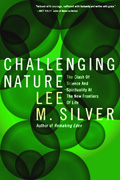 |
 |
Organic farmers never use
toxic chemical pesticides on their crops, right? GM crops are more likely to be
dangerous than organic ones, right? Actually, the first claim is factually incorrect, and
the second flies in the face of empirical data! So
why are so many people so easily fooled?
Organic
food is promoted as safer than “conventional” food
because it is grown without chemical pesticides, and better
for the environment because it excludes the use of any genetically
engineered organisms. Both of these claims are false. Organic
advocates who make them are either self-deluding, ignorant
of the real practice of organic farming, or purposely trying
to fool consumers. In
fact, organic farmers DO use chemical pesticides including
pyrethrin (C21H28O3), one of several common toxic
chemicals sprayed onto organic fruit trees—even on the
day of harvesting (if it wasn't toxic to pests, it wouldn't be used). Another organic
chemical is rotenone (C23H22O6), a potent neurotoxin, long used to kill fish and recently
linked to Parkinson's disease (see pictures to right). How can organic
farmers justify the use of these and other chemical pesticides?
The answer comes from the delusion that substances produced
by living organisms are not really chemicals, but rather organic
constituents of nature. Since pyrethrin is produced naturally
by chrysanthemums and rotenone comes from a native Indian vine,
they are deemed organic and acceptable for use on organic farms.
Even the highly lethal poison strychnine is considered “organic” because
it is made naturally,
although it’s too lethal for use by even organic farmers. (In
reality, no currently approved pesticide -- whether organic
or not -- has a detectable effect on the health of consumers.)
Meanwhile, the pigs grown on organic farms need to be fed
supplements of phosphorous (a required mineral), because the
phosphorous in their grain is poorly absorbed and is mostly
excreted into manure. Phosophorous-rich pig manure is a major
cause of ecological degradation in Northern Europe and East
Asia, and has killed all of the aquatic life in some rivers
and estuaries. A cheap and efficient solution to this environmental
problem could be achieved by providing pigs with a gene (naturally
found in the human gut) that produces an enzyme for digesting
phosphorous contained in grain. Organic farmers are unable
to even consider such a solution because of their religious
faith in the beneficence of Mother Nature over "human artifact." In
fact, crops like corn, tomatoes and apples (and most others) simply didn't exist as
edible entities until they were created by selective breeding, long ago.
Although some natural organic substances like strychnine and
ricin are lethal to everyone, and are not used in agriculture,
other common food substances -- present most notably in soy
and peanuts -- are harmless to most people but can cause severe
allergies in some children, leading to anaphylactic shock and
occasionally death. Organic soy and peanuts are just as toxic
to these unfortunate children as conventionally produced foods.
But the biochemistry of these allergies is very well understood,
and already, a much less allergenic soy has been engineered
by shutting off the activity of a particular gene. If one day,
conventional farmers switch their planting to such precisely
engineered crops, they will benefit thousands of children who
would have otherwise suffered greatly. However, organic farmers
will refuse to consider the evidence and will blindly continue
to plant and sell their allergenic soy and peanuts, leading
to suffering and death that could have been avoided.
Absolute faith in dogma, of any kind, when the evidence demonstrates
that the dogma is false, is the definition of fundamentalism.
Blind organic advocates are no different, in this regard, from
Christian fundamentalists or Muslim fundamentalists, who willing
sacrifice individual human lives for some “greater good.” Further reading
|
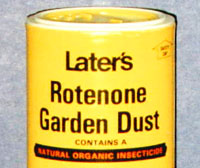 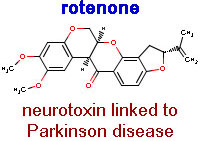 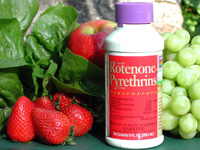 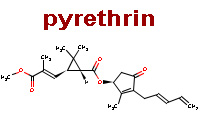 |
